We speak to Sylvia Mac about life as a child burn survivor, negotiating on social media and encouraging other people to embrace their bodies
Photography: Kaye Ford
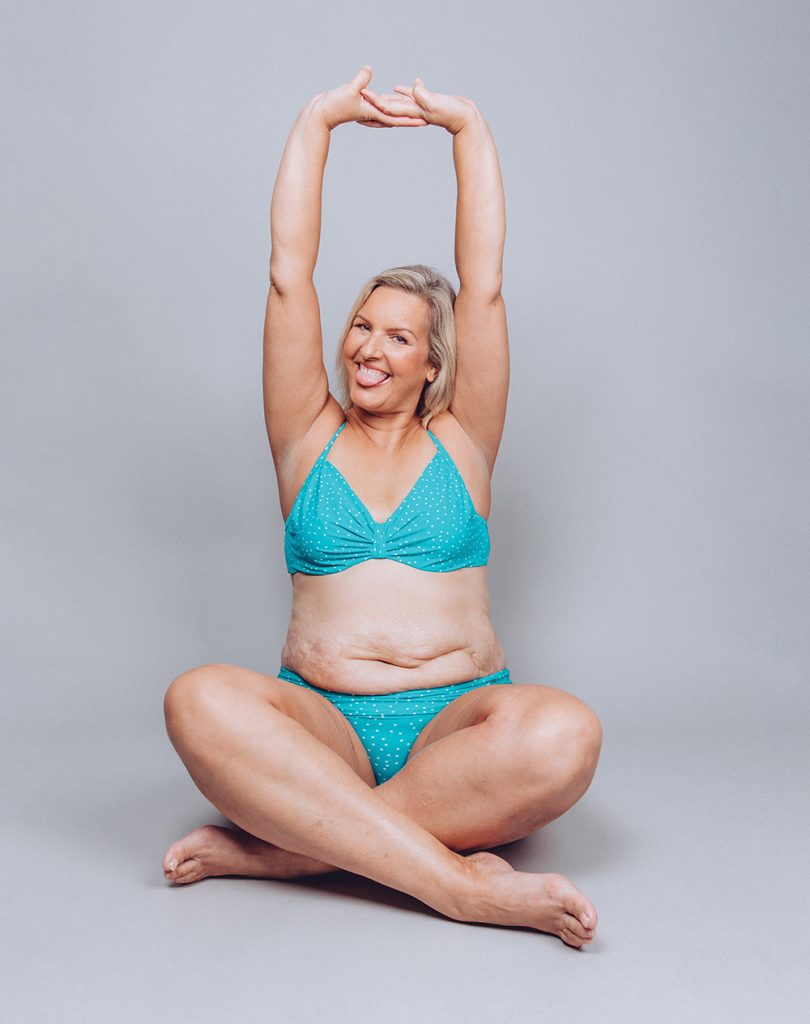
Watching Sylvia, known as Love Disfigure online, walk confidently around the photography studio in a bright blue bikini, it’s hard to imagine that just a few years ago she was so self-conscious about her burn scars that she would keep them covered at all times.
The scars, which cover the entirety of her back and parts of her legs, stomach and breasts, are the result of an accident that occurred when Sylvia was just four years old and playing at home with her sisters.
“I was the youngest of five girls, and we were playing hide and seek in the flat. We were told not to go into the bathroom because my mum was boiling pots of water for the bath, but I went into the bathroom and hid behind the door. Because we were told not to go in there, I thought it would be a great place to hide. My sister pushed the door and I went flying backwards into a pot of boiling water that was on the floor. I ended up with burns all over my back.
“They had to take skin grafts from the areas of my body that weren’t burnt. So, as well as the burn scars, I also have what look like knife marks all over my arms and legs. My back had to be completely built up with skin grafts because I had a big hole in it from the burns. I was taken to the Royal London hospital first because it was closest, but they didn’t have a burns unit. My family were told I wouldn’t survive, but a consultant came in and said to rush me to Mount Vernon hospital to see if they could help. I was put on life support when I arrived there and I had to have lots of surgeries. I wasn’t supposed to survive, and my last rights were read to me twice. Eventually, I did come off of life support and I recovered.”
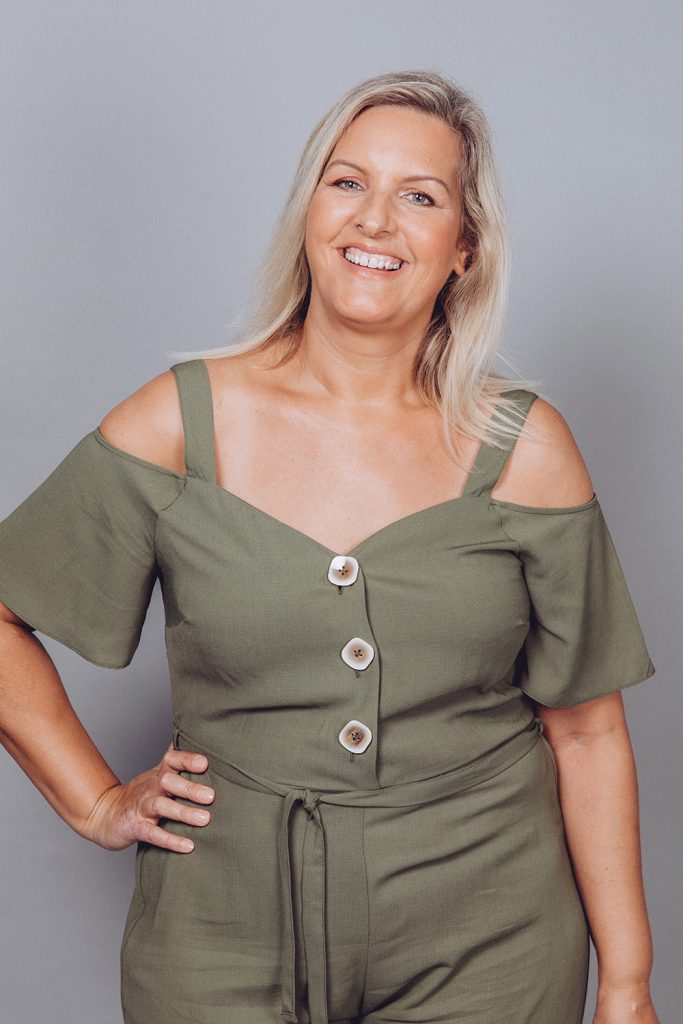
Growing up with such extensive scars was difficult for Sylvia, and as a child she struggled to make friends and socialise without worrying about what her peers would think of her scars.
“In primary school it was quite difficult because I didn’t spend much time there (due to the amount of time I had to spend in hospital). It felt like everyone had built friendships so it was difficult for me to fit in. When I went to secondary school, I didn’t want anyone to come near me in case they felt or saw my scars. I would stay at the back of the class and wouldn’t put my hand up. When we went to the toilets, I didn’t look at myself in the mirror because I didn’t want anyone to think I saw myself as beautiful. I didn’t see myself as beautiful and I didn’t want people to think I was admiring myself. If I wore shorts for PE, I would use my hand to cover the scarring on my leg so people couldn’t see it. I wouldn’t let anyone in, and I didn’t want anyone to know about my scars. I would just try to keep people away from me.”
Looking back, Sylvia wishes social media was around when she was growing up – especially the self-love and body confidence communities. She feels that seeing other people who looked like her, and were living happy lives, would have inspired her to do the same.
“There are a lot of people on social media who promote the message of being happy with who you are. If I had that when I was at school, at least I would have known that it’s ok to have scars. It’s why I do what I do now. I want others to know that it’s fine, and you shouldn’t waste your life thinking it’s not ok to have disfigurements or scars. It’s pointless spending your life not feeling worthy, or that you don’t fit in.”
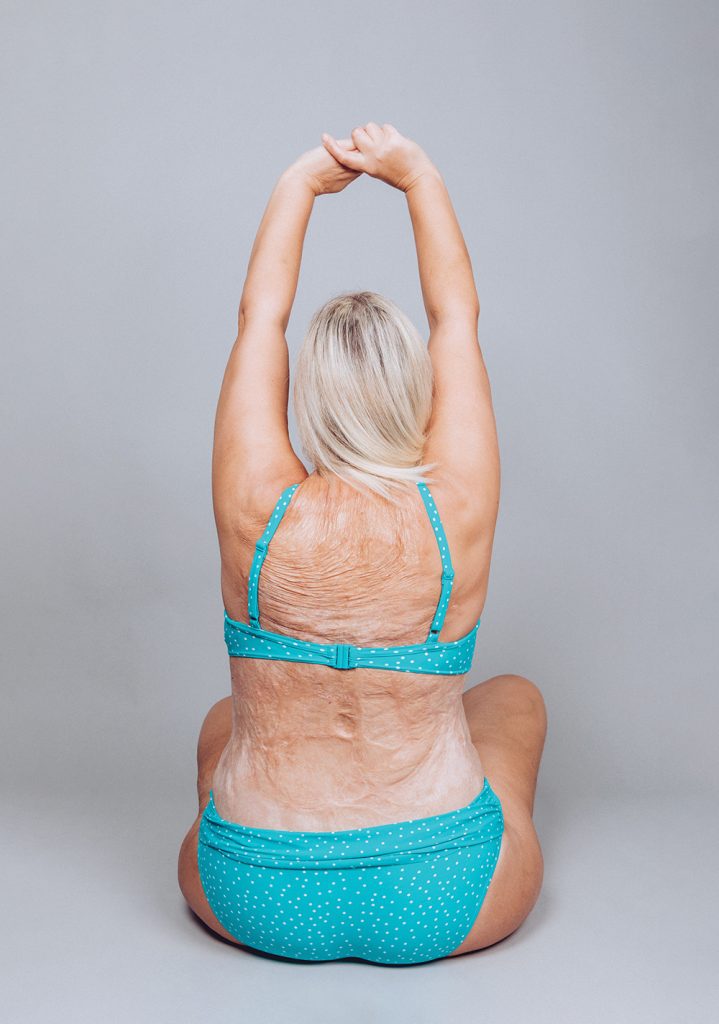
With an audience of 14,000+ on Instagram and a Facebook group with 1,800+ members, Sylvia now uses her social media presence to encourage other people to embrace their bodies and feel confident, regardless of if they have disfigurements or scars.
“After sharing my ‘video reveal’ of my scars on Facebook, I created a support group on the platform and, after a couple of years, I started an Instagram account.
“I started by sharing my story, but I really wanted to help others so I began to also share other people’s stories via my account. My audience love it, and now people will DM me and ask me to share their story. The good thing is, if I’m sharing the story of someone with self- harm scars or a stoma bag or psoriasis, it’s increasing the reach and providing inspiration for people who suffer from similar scars or medical conditions. I like to think of myself as the trunk of a tree, and the stories that I share as branches.”
“I now run events where I encourage people to embrace self-love and their bodies. I like doing things like that to show how other people have moved from a negative space to a more positive one. I’m doing a talk during Mental Health Awareness Week at Alexandra Palace for a group of MPs. I’m also improving my photography and videography skills so I can be the person to create content around other people’s stories and share them further.”
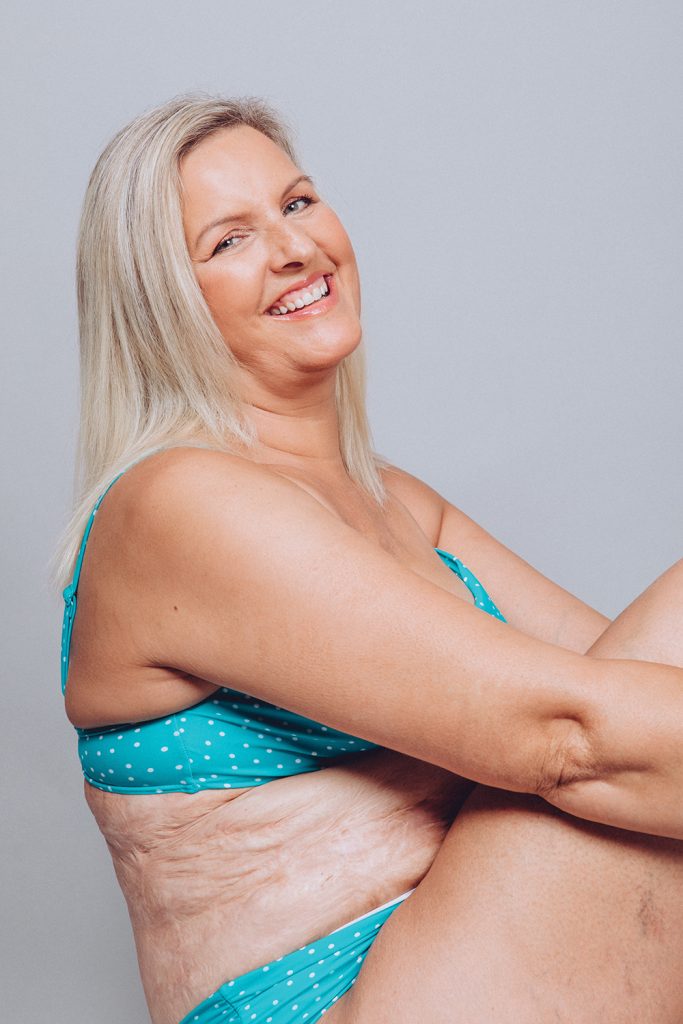
Although she now uses her social media accounts to inspire others, when Sylvia first started using Facebook she was not in such a positive place and she would often lash out at people.
“When I first started using social media, I wasn’t a very nice person. I was quite negative and I judged everyone. It’s quite ironic that I was like that, because deep down I didn’t want to be judged for how I looked. If somebody posted something positive, I would think ‘F you’ and I could be really bad. I attacked the people around me and I was just horrible. I had to delete a lot of things I posted because they were so bad.
“I had a turning point in my life and it really changed my perspective, and made me a more positive person. I went on holiday with my mum and my son. We were by our hotel and a man started filming me with his phone. I felt so paranoid and uncomfortable about it. When we went to the beach later on I could tell that my mum was really upset and sad. I couldn’t let my mum continue to carry the guilt she felt for what had happened to me. I had to do something in that moment to help her. I had a sarong on with a bikini, so I went down to the water’s edge and took off the sarong and just started posing and shouting to my mum ‘I’m ok, it’s ok!’. It wasn’t about changing my life, it was about changing my mum’s life and it was really important for me to do that.”
“I empathise with people who are negative online. I notice other people who leave horrible comments and I can see that it’s a cry for help. I like to give them a chance, because I was in that place myself. They just need someone to talk to, so normally I try to message them. I always have a positive response from doing that and it’s amazing how many people can change their lives from me reaching out. To hear people say that they’ve been in a bad place and that I’ve changed their life, it makes me feel so happy and emotional. It’s hard to imagine that other people can go through such hard times, even though I’ve also been through it. Just to know they’re now in a good place is reassuring.”
Now that Sylvia is in a position to help others, she encourages them to also have empathy for those who may lash out or stare at people with scars.
“We are a judgemental society, and we do tend to stare at what is different. We need to get used to that. I try to teach people not to worry about what others are thinking. If you go out and somebody is staring, don’t automatically assume that it’s a bad thing. You can’t work out what is going on in someone else’s head, so it’s best to just keep it moving. If someone comes up and asks about your scars or disfigurement it’s up to you to decide whether you want to explain or not, but don’t let other people’s curiosity keep you from living life to the fullest.”
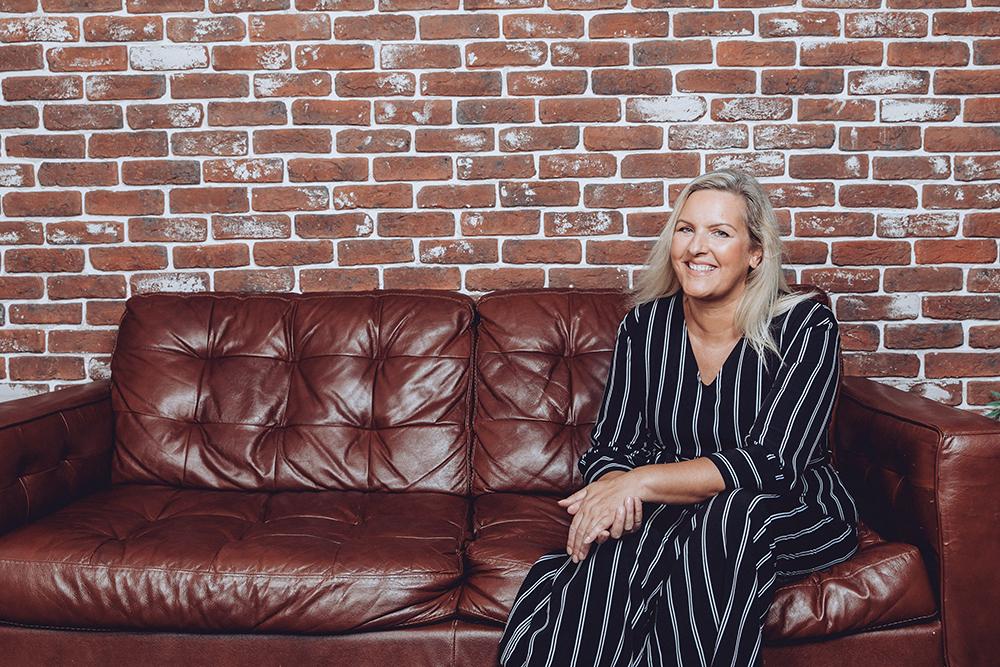
Sylvia has the same attitude when it comes to social media, and believes it is important that she continues to share her own images (and others’) regardless of the reaction. Ultimately, she hopes by being present online and offline she will encourage others to feel confident in their own bodies.
“There are still plenty of people out there who don’t know how to get involved with self-love, because they’re afraid of what people are thinking. If they have scars or a skin condition they might not even show a profile picture so it’s important that I share my photos to show you can get to a good place. Social media can be a scary place, there are trolls out there, but we have delete and block buttons, so use them!”
“I’ve grown Love Disfigure to include more people, so they continue to feel engaged. I hope that the people who follow me will grow and eventually get to a place where they feel able to share their own images.”
